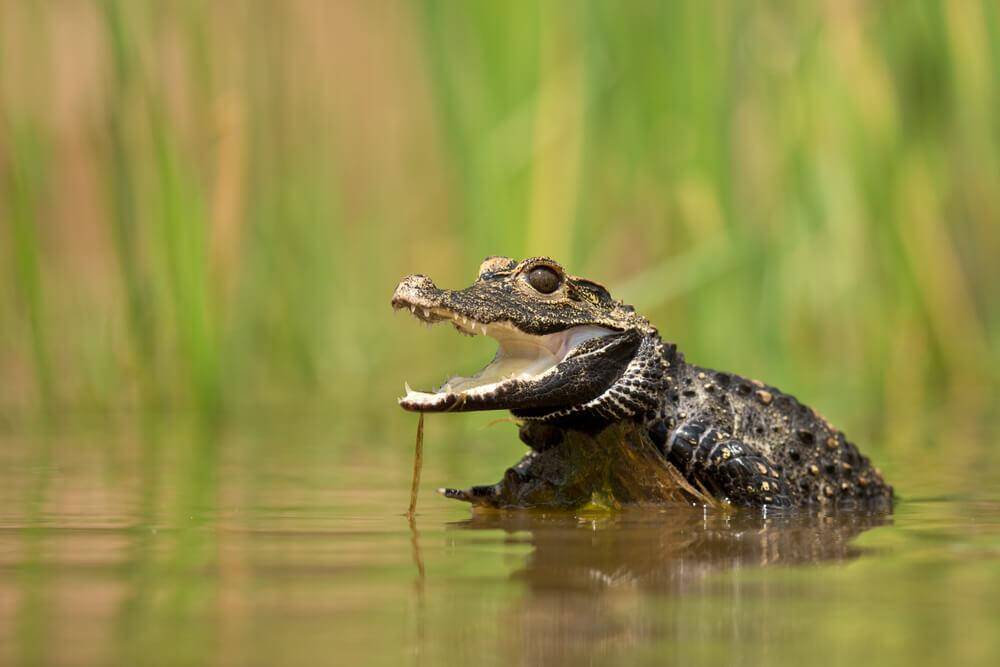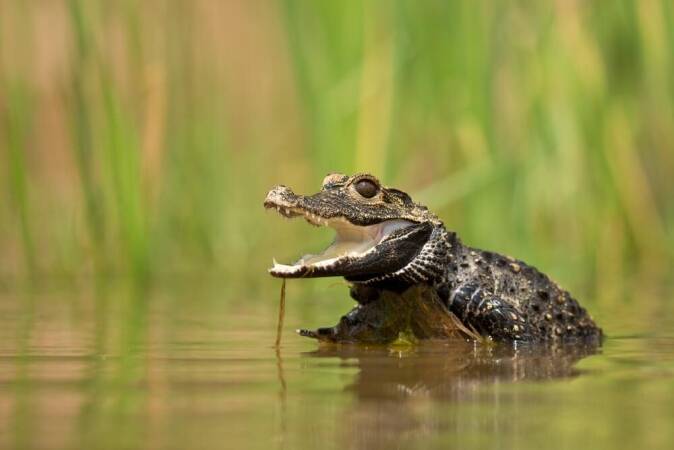

The dwarf crocodile (Osteolaemus tetrapis) is the world’s smallest living crocodile and is found in the sub-Saharan regions of West and Central Africa. This nocturnal reptile is classed as “vulnerable” according to the IUCN, with decreasing numbers and habitat, but available for game hunting safaris in several regions.
On a game hunting safari, you will look for the dwarf crocodile in rainforests and dense vegetation habitats near slow-flowing water such as rivers, swamps, streams, and pools. They are solitary hunters, that spend their days hiding in their burrows, and nights foraging for food, including frogs, toads, fish, rats, and birds.
The mating season for the dwarf crocodile is May to June, where females lay between 10-20 eggs that remain incubated for up to 100 days. When hatched, the crocodiles call for their mother who carries them to the water. These tiny crocodiles are born fully independent.
Man on his African hunts are not the only predators for this little crocodile. It counts on its list of predators larger crocodiles, birds of prey, and large mammals, such as the leopard.
Name:
Osteolaemus tetrapis
Male Weight:
39-70 pounds
Male Length:
5.6-6.2 ft, average of 5.9
Gestation Period:
3 months
Range:
West & Central Africa
Life span:
40-75 years
The dwarf crocodile is a challenging game hunting trophy for those targeting a less aggressive version of the African crocodile.
When crocodile hunting in Africa, look for a small reptile with a short, blunt muzzle. It may be a short and blunt muzzle, but it houses around 30-32 razor-sharp teeth that can do serious damage! Its nostrils and eyes are found on the top of its muzzle, allowing it to see and breathe while lying sedentary in the water. The dwarf crocodile is dark, almost black, with a lighter underbelly. Its scales form an armor-type covering, protecting it from predators. The crocodile has webbing between its toes to assist in swimming, and its large tail helps it glide effortlessly through the water.
This nocturnal reptile can be hunted from a blind, and the walk–and-stalk method is highly challenging – but doable.
The challenge on these African hunts is getting close enough to be able to get your shot, as crocodiles can feel vibrations in the ground of predators or prey approaching. What a great trophy, talking point, and reminder of safari hunting in Africa, the smallest crocodile alive would be!
A sub-species of the African crocodile, the dwarf crocodile is best hunted with a 7mm. 300-win mag or even a .243 that is still capable of penetrating the thick skull. Shots will be at the brain, through a thick skull, or the vertebrae.
Search from our range of Hunts across various popular destinations in Africa.
Find A Hunt